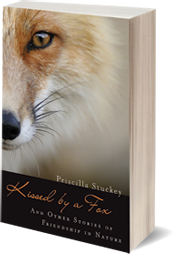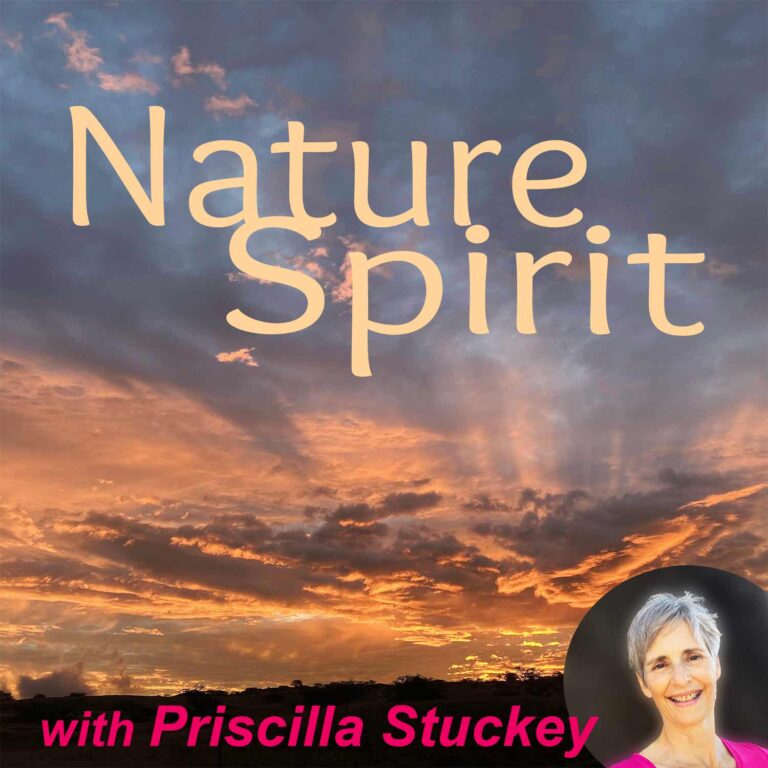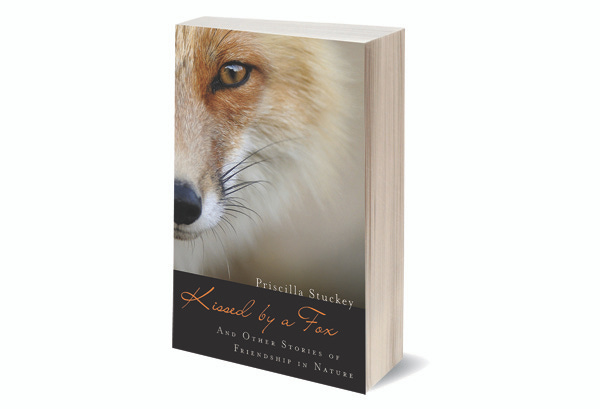Transcript
So I thought I’d do something a little different today. I’m in the middle of a big project— recording my books and making them into audiobooks. It’s been a longtime dream, and I’m really happy to finally be fulfilling it. And at the same time it’s a pretty challenging process, with some steep learning curves. But I’m thrilled to be giving each book a voice, which is a kind of life they haven’t had yet. And I’m excited to make them available to people who enjoy listening more than reading.
So in the recording process I’m about in the middle of my first book, Kissed by a Fox: And Other Stories of Friendship in Nature. That book is a memoir, but only partly memoir. Each chapter starts with a story of a special connection I made with an animal or a tree or a bird. But then I take off from the story to ask what this experience says about our shared cultural stories of nature. And to help us imagine different, more life-giving stories to nourish ourselves with.
 Because alternate stories of nature are available. Most Indigenous traditions have been living for thousands of years with way different, and more hopeful, stories about nature than we tell in the Western world. So in Kissed by a Fox I lift up some of these Indigenous worldviews, with the hope that those of us who inherited more pessimistic stories can learn from them—that we too can learn to tell foundational stories that support and nourish our connections with nature. That help us cultivate love and respect toward the rest of the creatures on Earth.
Because alternate stories of nature are available. Most Indigenous traditions have been living for thousands of years with way different, and more hopeful, stories about nature than we tell in the Western world. So in Kissed by a Fox I lift up some of these Indigenous worldviews, with the hope that those of us who inherited more pessimistic stories can learn from them—that we too can learn to tell foundational stories that support and nourish our connections with nature. That help us cultivate love and respect toward the rest of the creatures on Earth.
People over the years have asked, Did you really get kissed by a fox? Yes, I really did! It happened at a wildlife rehab center in the Bay Area, where I was volunteering, mostly feeding baby birds. But some nights I would pass out dinner bowls to the two resident coyotes and a red fox named Rudy. To feed them I had to persuade each animal to go into their nighttime enclosure before giving them their dinner. And sometimes, as you will hear, the process could get a little complicated.
So this is the story of how Rudy the red fox and I got to know each other over his evening food bowl. It opens chapter 4 of the audiobook version of Kissed by a Fox, and the audiobook is coming soon!
I squatted on the floor, waiting for Rudy to finish pacing. At last he had slipped inside the safety of his night pen, and I had dropped the gate to lock him in. Now his food bowl awaited. But would he approach it with me crouching only two feet away?
The red fox and I had performed our usual evening dance. Me: stand just inside his night pen with my hand on the long rope leading to the gate. Rudy: race around the outside enclosure, dart into then out of the night pen. Me: stand stock-still. Rudy: creep up to the doorway, peer in. Me: don’t breathe. Rudy: take two steps in, dart out again.
Our ballet was Rudy’s show, and week by week he hesitated less before finally slinking all the way in, lured by his food bowl sitting full and fresh inside. On cue, I released the rope and dropped the gate, then crouched far away from his bowl. We’d been doing the dance for five weeks now, and finally he’d begun to nibble his food with me in the room.
Rudy had been brought in as an orphaned kit and given a home at the center because he could not be released into the wild by law of California Fish and Game since red foxes are not native to the state. He’d lived six years at the center, spending his days lying in the grass or rooting in the sand under one of the small pink-flowering trees in his enclosure, playing hide-and-seek with the children and parents filing past his fence. Actually, he played hide-and-hide, for like a good fox he took up a spot then sat motionless, blending into the background. At night he was brought inside to keep him safe from poachers, both animal and human. Once he knew the staffperson bringing him in, he slipped into his night pen readily, but until you had passed his friend test, he tried to keep his options open.
As I waited for Rudy to calm down and begin eating, I glanced around at the gray concrete and fluorescent light. It looked like a prison. How could a fox, who loved porous, fragrant earth and potholed rock, possibly enjoy coming in at night to squared-off concrete walls and a flat concrete floor? When I later was sent with pail and scrub brush to clean out Rudy’s digs, I suddenly appreciated the smooth concrete. Still, I couldn’t imagine Rudy liked it. Foxes are most active at dawn and dusk, and if I’d been a fox, I’d have wanted to stay outside at twilight too.
Plus, there was the smell. Each time I passed Rudy’s pen it took me by surprise—a clear whiff of skunk but not as strong. Like skunks, male foxes mark their territory with a musky secretion from their anal glands, and though the pen was hosed down regularly, every week Rudy’s enclosure announced “skunk.”
Still, I was safe with Rudy. Or thought I was. Hand-raised by humans, Rudy was the darling of every staffperson at the center and had never shown a hostile whisker to anyone. He was wary, like a good fox, but not unfriendly. Staffers could visit Rudy anytime we liked—unlike with the resident coyote across the way, whose pen we were forbidden to enter except to retrieve an empty food bowl. The coyote seemed mellow enough—reach your fingers through the fence to scratch his neck, and instantly his head turned toward the sky, his golden eyes glazing over in bliss. But one morning a few years earlier, when he was being walked by his favorite caretaker to the classroom to meet schoolchildren, he had reared up, snarled, and attacked the young man, gashing him badly enough to send him to the hospital.
Because Rudy seemed safe, I wanted to get closer. We were making good progress. Last week as I squatted on the floor, he had padded softly toward me, sniffing. I stayed motionless, afraid I would spook him if I so much as breathed while his pointed black nose probed the air just inches from my body.
Tonight I squatted again, this time closer to his bowl. Soon Rudy was padding toward me again and sniffing. He made a slow circle around me, one moment almost touching, the next retreating. My knee on the ground was beginning to ache. How long could I stay propped in this position? Suddenly he stepped directly in front of me. Then, without warning, he lifted one paw, put it on my lower knee, and, raising himself vertically, stared directly into my face.
I gasped. I couldn’t help it. I’d never been that close to the needle-sharp teeth of a fox. Captivity, I knew, makes people, and especially wild animals, crazy. Was Rudy, like the coyote, planning to attack?
After studying my face up close for a moment, he opened his mouth, stretched out his tongue, and with it reached between my parted lips. Startled, I made an effort to keep still. After licking the inside of my mouth for a few seconds, he withdrew his tongue, let himself down to the floor, and began gobbling his food.
I’d just been French-kissed by a fox.
I was elated, I wanted to spit fast and hard—all in the same moment.
A little dazed, grinning and working grit out with my tongue, I slipped out the door, leaving Rudy to his dinner.
After that night Rudy’s kisses became de rigueur. I’d bring his dinner, and once inside for the night, he’d sniff his bowl then, before grabbing the first bite, approach me where I crouched on the floor, put his front paws on my knee, stare in my face for a second, then probe my mouth with his tongue.
After volunteer duties rotated and I no longer fed him, anytime I stopped in to say hello, he greeted me in the same way. I never did get used to that gritty tongue—he’d been rooting around in the earth and in who knows what—and neither did I get used being French-kissed by a creature who smelled more than a little of skunk. But neither did I catch any dread diseases.
Only much later did I find out what Rudy was actually doing. Visiting a friend one day, I pick up a book on wildlife tracking and turn immediately to the chapter on foxes. There I read that newly weaned fox kits remain in their den while the parents go out and hunt. When one adult returns with food, the kits eagerly crowd around, trying to lick the parent’s mouth, probing inside it with their tongues to see what Mom or Dad has brought for dinner and stimulating the adult to regurgitate the food.
Rudy wasn’t kissing me after all; he was checking the menu. He must have wondered why I never coughed up the dog chow, dead mice, boiled eggs, and chopped fruit that appeared in his bowl.
He was also greeting me as a fox greets a trusted member of the family. Years later I still feel honored.
For digging deeper
Read the opening chapter of Kissed by a Fox from a link on this page, right after the first paragraph on the page. Plus, on the same page you can watch the book trailer and also the very first time I read from the book after it came out, at the Tattered Cover bookstore in Denver.
The book won the WILLA Award from Women Writing the West, a group that recognizes and supports women’s contributions to the American West and to women’s writing about it.
















